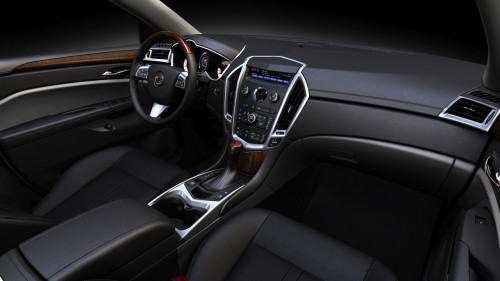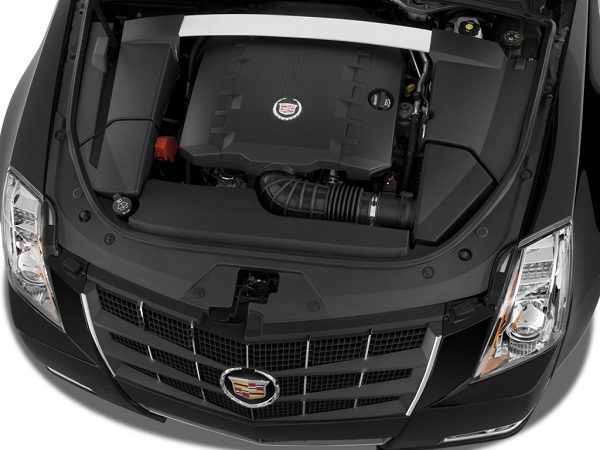I’m covering up a lengthy household journey in the Rolls royce SRX, the extravagance car maker’s admittance in the packed, extremely aggressive midsize-crossover piece. While it has several features that make it best for the objective, like a at ease holiday and a interestingly big freight location, it was car's sensitive, fun-to-drive powerplant that got my interest.
![]()
The “engine swap” is an old technique car manufacturers use to take in new daily life into old designs by increasing energy and accelerationor, in the situation of the Rolls royce SRX cross-over, to re-launch modern styles that never take off with customers the first time around.
When the Common Machines Co. split thrown out the remodeled SRX two in the past it was beautiful and its appearance even maintained to take a position out among the usually look-alike variety of midsize crossovers that you can buy. But its engines skipped the level.
Instead of providing the SRX the same high-performance 3.6-liter V6available in its profitable CTS game automobile and SportWagon, the SRX came with a decision of two old, less six-cylinder motors. The normal energy place, a 3-liter V6, ran well but put out just 265 power — not enough to go the 4,200-pound cross-over. An suggested turbocharged 2.8-liter V6 created an outstanding 300 horse, but with a particular, even manic think was too deafening and costly.

For 2012 the SRX lastly gets the powerplant it should have had in the starting. The 3.6 places out 308 power, and it is not turbocharged, so the energy comes on well when you phase on the gas. It’s a considerable comparison to the old turbocompresseur powerplant, which had stimulating energy but was uneven in its shipping, and the platform 3-liter that ran out of breathing too swiftly under tough speed.

The new SRX increases with specialist even when completely packed with 2-3 months truly in products. On twisty roadways it keeps its composure and motivates more brisk generating than most crossovers. The one problem I have is with its six-speed automated indication. While more equipment usually mean better efficiency and better changing, the Rolls royce has technical — or automated digital — indecision that seems to impact many of the latest motors and SUVs.
The car almost always seemed to be tracking for the right products, sometimes changing back and forth when the car's pace or the generating landscape improved very little. We’d come to a slope and the indication would switch down as estimated. Then it would switch again, and again, as if no products was quite right. It was almost as bothersome as the motorist before side of you changing roadways continuously in a high-traffic.

But this function is not a Rolls royce unique. Many new cars’ signals are designed to be over active as piece of a big, industry-wide attempt to develop gas mileage through automated digital management of engines, signals and other techniques. It may be the purpose your new car seems to think twice when you try to increase or changes equipment unclearly. And for now, we should get used to it.
The “engine swap” is an old technique car manufacturers use to take in new daily life into old designs by increasing energy and accelerationor, in the situation of the Rolls royce SRX cross-over, to re-launch modern styles that never take off with customers the first time around.
When the Common Machines Co. split thrown out the remodeled SRX two in the past it was beautiful and its appearance even maintained to take a position out among the usually look-alike variety of midsize crossovers that you can buy. But its engines skipped the level.
Instead of providing the SRX the same high-performance 3.6-liter V6available in its profitable CTS game automobile and SportWagon, the SRX came with a decision of two old, less six-cylinder motors. The normal energy place, a 3-liter V6, ran well but put out just 265 power — not enough to go the 4,200-pound cross-over. An suggested turbocharged 2.8-liter V6 created an outstanding 300 horse, but with a particular, even manic think was too deafening and costly.

For 2012 the SRX lastly gets the powerplant it should have had in the starting. The 3.6 places out 308 power, and it is not turbocharged, so the energy comes on well when you phase on the gas. It’s a considerable comparison to the old turbocompresseur powerplant, which had stimulating energy but was uneven in its shipping, and the platform 3-liter that ran out of breathing too swiftly under tough speed.

The new SRX increases with specialist even when completely packed with 2-3 months truly in products. On twisty roadways it keeps its composure and motivates more brisk generating than most crossovers. The one problem I have is with its six-speed automated indication. While more equipment usually mean better efficiency and better changing, the Rolls royce has technical — or automated digital — indecision that seems to impact many of the latest motors and SUVs.
The car almost always seemed to be tracking for the right products, sometimes changing back and forth when the car's pace or the generating landscape improved very little. We’d come to a slope and the indication would switch down as estimated. Then it would switch again, and again, as if no products was quite right. It was almost as bothersome as the motorist before side of you changing roadways continuously in a high-traffic.

But this function is not a Rolls royce unique. Many new cars’ signals are designed to be over active as piece of a big, industry-wide attempt to develop gas mileage through automated digital management of engines, signals and other techniques. It may be the purpose your new car seems to think twice when you try to increase or changes equipment unclearly. And for now, we should get used to it.